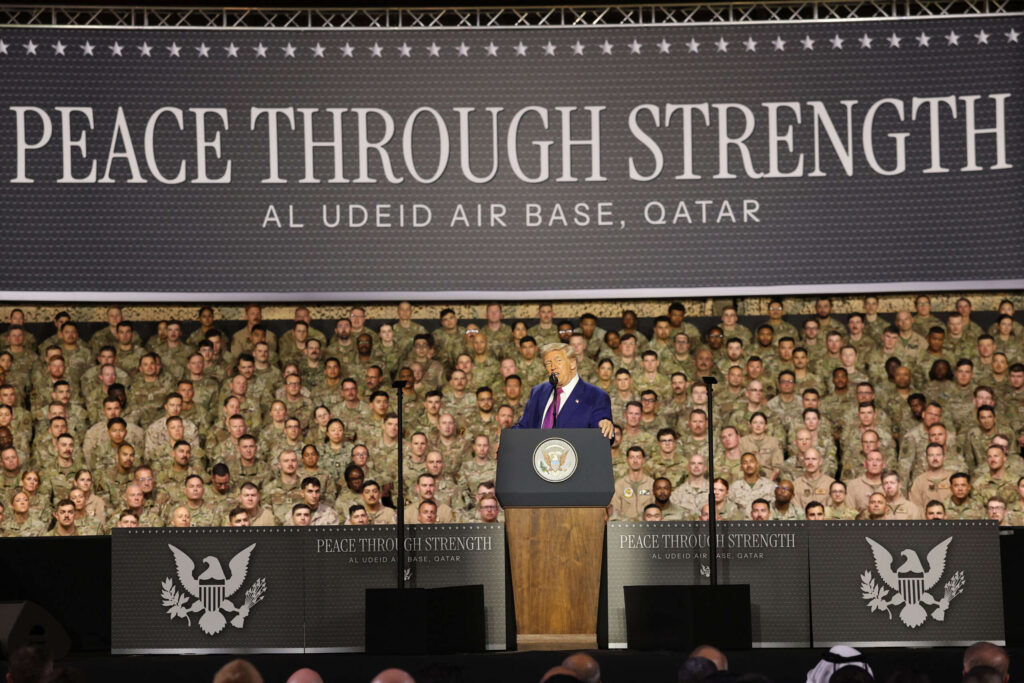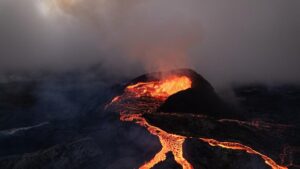
Shortly after former President Donald Trump announced on Truth Social that the United States had conducted strikes on three Iranian nuclear facilities on June 21, Israeli Prime Minister Benjamin Netanyahu addressed the world with a gleeful demeanor. “President Trump and I often say peace through strength,” Netanyahu declared. “First comes strength, then comes peace. And tonight, President Trump and the United States acted with a lot of strength.”
Netanyahu’s words mask the reality of the situation: the “strength” he refers to is an unprovoked war of aggression, with the U.S. joining Israel in a campaign that many view as sheer domination rather than a pursuit of peace. Trump’s strikes are the latest in a long history of the U.S. and Israel using force to impose their will on others.
The Myth of Iran’s Nuclear Threat
For decades, the U.S. and Israel have perpetuated the narrative that Iran’s civilian nuclear program is a cover for developing nuclear weapons, despite Iran abandoning its weapons program in 2003. This narrative has been bolstered by corporate media, which has played a role in spreading these unfounded claims. Recent assessments from the U.S. intelligence community, as of March, indicate there is no evidence that Iran is seeking or creating nuclear weapons.
Meanwhile, the U.S. possesses over 5,000 nuclear warheads, second only to Russia, and Israel has an estimated 90, though it has never confirmed nor denied this. Israel, the only nuclear power in the Middle East, has not signed the Treaty on the Non-Proliferation of Nuclear Weapons, and its nuclear program remains unmonitored by the International Atomic Energy Agency (IAEA). In contrast, Iran, a signatory of the treaty, has allowed IAEA inspections.
Humanitarian Crisis and Historical Context
The aftermath of the U.S. attack on Iran has been dire. Panic over potential radiation spread ensued around the bombarded nuclear facilities at Fordow, Natanz, and Isfahan. Human rights groups report that at least 865 Iranians have been killed in the strikes, which have targeted residential areas, media outlets, and even medical facilities.
For Iranians, the recent bombardment is a living nightmare. The chaos is compounded by Trump’s warnings for Tehran residents to evacuate, affecting a city of 17 million. The Iranian diaspora struggles to contact loved ones amid blackouts, while Iranian Americans watch their tax dollars fund these attacks.
The roots of this conflict trace back to 1979, when the U.S. began viewing war with Iran as both inevitable and impossible. Over the years, the U.S. and Israel have employed various strategies to weaken Iran, from economic sanctions to cyber warfare and assassinations.
Global Reactions and Implications
Internationally, the response has been mixed. European leaders, while urging Iran to exercise restraint, have not directly challenged U.S. and Israeli actions. German Chancellor Friedrich Merz even praised Israel for its actions against Iran.
This situation reflects a broader trend where acts of state aggression are increasingly tolerated and even celebrated. The current conflict is not merely about nuclear weapons but about a larger struggle for power and control, raising concerns for nations worldwide.
Moving Forward: The Call for Accountability
As the world watches, there is a growing call for accountability. Critics argue that the U.S. and Israel’s actions represent a departure from international norms and law, with both countries openly embracing force to assert dominance.
The parallels to the 2003 Iraq invasion are stark, with similar narratives of weapons of mass destruction being used to justify military action. This time, however, there is a push for a robust antiwar movement in the U.S., one that challenges not just the legality of the conflict but its very existence.
Efforts are underway to demand arms embargoes and escalate the Boycott, Divestment, and Sanctions movement to impose economic consequences for acts of aggression. Organizing across sectors is seen as crucial to preventing further escalation and building long-term political resilience.
Governments have shown reluctance or inability to hold the U.S. and Israel accountable. It falls to global citizens and movements to take up the mantle of justice and prevent further humanitarian crises.






